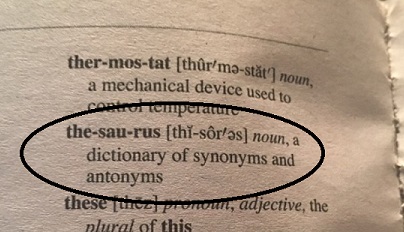So you have finally started your job search and are diligently working on your resume. You know your resume is more than an iteration of your employment history. You know your resume is a marketing tool that sells you. You also know that a resume can make or break your chances of getting an interview.

So do you also know that all verbs are not created equally? That’s right, a verb is not a verb. To write a compelling resume, you have to write a story that demonstrates more than a list of tasks. It must reflect your accomplishments and stand apart from the hundreds of other resumes that are being reviewed.
To demonstrate this point, read the below excerpt from a resume:
- Led a sales team that was rated number one in the company for their increased market share in Q2 for product XYZ
- Led training sessions and helped develop team’s sales and negotiating skills
- Managed territory routing and workload distribution
- Responsible for ensuring quotas were met and revenue targets were achieved
What is wrong with this? Technically, nothing. The better question is “what is special about this”? The answer, nothing!
Now read the below resume excerpt:
- Orchestrated training in Q1 2016 that was focused on sales tactics and negotiation skills for the product XYZ team, which earned the highest market share growth for Q2 2016 out of 200 sales teams within the company
- Engineered territory routing that balanced team workload and improved efficiency which enabled the sales team to maximize coverage and exceed revenue targets
Both excerpts say the same thing, but the second excerpt paints a picture of what the candidate did and what that resulted in for the company. Using powerful verbs and tying those verbs to a result or accomplishment is critical in writing an effective resume. If you struggle to identify meaningful verbs that allow you to connect your tasks to results, below are tips.
Common Resume Verb Substitutes
Instead of Led, try one of these verbs:
Spearheaded, Steered, Guided, Mentored, Consulted, Chaired
Instead of Created, try one of these verbs:
Engineered, Pioneered, Assembled, Orchestrated, Synthesized, Established, Prototyped
Struggling to find words that demonstrate an accomplishment? Try one of these verbs:
Standardized, Enhanced, Regulated, Accelerated, Awarded, Earned, Boosted, Attained, Energized, Capitalized
Not sure how to demonstrate your effective communications skills without saying “effective communicator”? Try incorporating one of these verbs:
Corresponded, Collaborated, Campaigned, Presented, Illustrated, Influenced, Authored, Publicized

There are endless powerful words that can be used to reflect your skills and experience. In addition to the suggested verbs above, don’t forget that there are many other verbs not listed in this article. Know how to find them? Use a thesaurus. One of the most underutilized tools in resume writing is the thesaurus. Most resumes are written using a data processing software with a built-in thesaurus.
After each bullet on your resume, ask yourself “why did I do this” or “what was the result of this”. This will help you draw accomplishments out of your tasks so you can create a story with your resume and not just a list of tasks.
Follow us on Twitter @kgworksoln every Tuesday for more resume tips and every Wednesday for interview tips. Ready to start interviewing and understanding how to answer tough interview questions, such as What is Your Greatest Weakness? You can also check us out on LinkedIn for even more tips on your job search.


